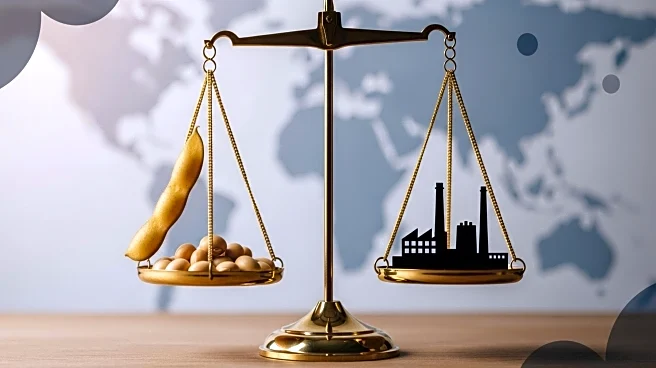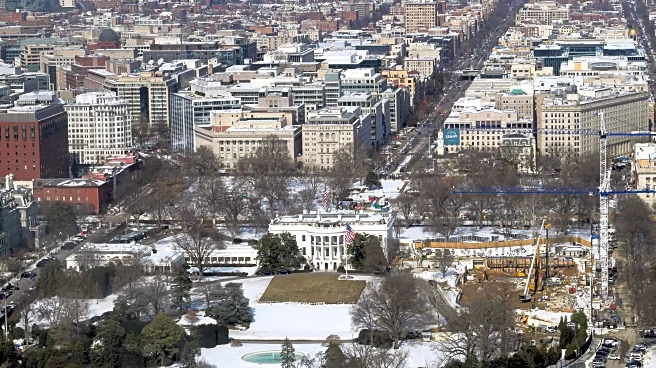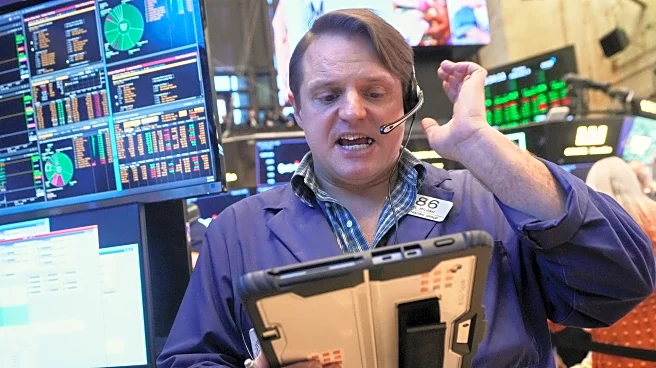What's Happening?
President Trump has announced potential tariffs on China, which could affect the soybean market. The U.S. is considering imposing a 100% tariff on Chinese goods starting November 1, following China's restrictions on rare-earth materials. This announcement initially caused a significant drop in soybean futures, reflecting market uncertainty. However, President Trump later reassured that relations with China are stable, and the planned meeting with Chinese President Xi Jinping is still expected to proceed. Meanwhile, China's soybean imports surged in September, with a notable increase from Brazil, while imports from the U.S. declined. The trade surplus between China and the U.S. has narrowed, indicating shifts in trade dynamics.
Why It's Important?
The potential tariffs could have significant implications for U.S. agriculture, particularly the soybean industry, which relies heavily on exports to China. A tariff increase may lead to reduced demand for U.S. soybeans, affecting farmers and the agricultural economy. Additionally, the broader U.S.-China trade relationship is crucial for global economic stability. Any disruptions could impact various sectors, including technology and manufacturing, given China's role in global supply chains. The narrowing trade surplus suggests changing trade patterns, which could influence future negotiations and economic strategies between the two nations.
What's Next?
If the tariffs are implemented, U.S. businesses may accelerate orders in October to mitigate potential impacts. The upcoming meeting between President Trump and President Xi Jinping could be pivotal in addressing trade tensions and finding resolutions. Stakeholders in agriculture and trade will closely monitor developments, as decisions made could have long-term effects on international trade policies and economic relations. The situation remains fluid, with potential for further negotiations or retaliatory measures from China.
Beyond the Headlines
The ongoing trade tensions highlight the complexities of international trade and the interconnectedness of global economies. Ethical considerations arise regarding the use of tariffs as a political tool, impacting industries and workers. Long-term shifts in trade policies could lead to changes in global supply chains, prompting businesses to explore alternative markets and suppliers. The situation underscores the importance of diplomatic engagement and strategic economic planning in navigating international relations.











